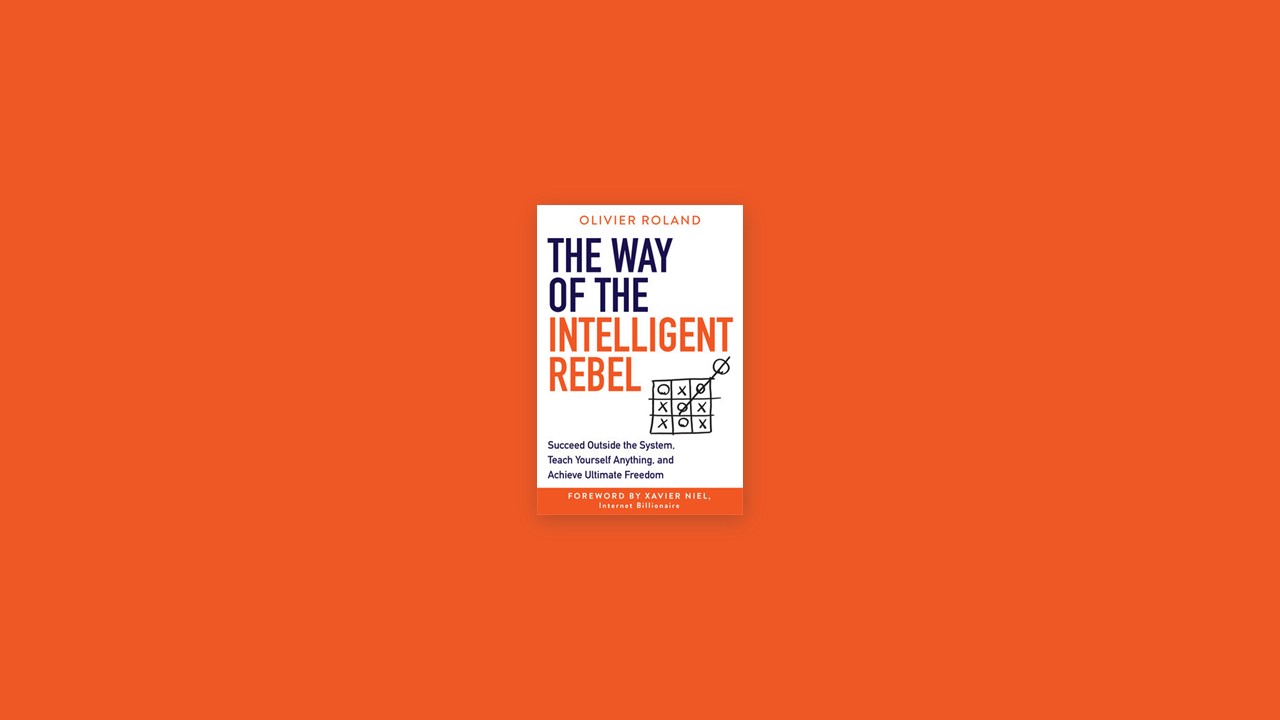Three Vital Principles for All Intelligent Rebels
‘As to methods, there may be a million and then some, but principles are few. The man who grasps principles can successfully select his own methods. The man who tries methods, ignoring principles, is sure to have trouble.’ – Harrington Emerson
These three principles will enable you, as the estimable Harrington explains, to select your own methods and use them effectively. 1) By being able to distinguish which ways are more effective, 2) by testing them to find out whether they are useful for you, and 3) by focusing 80 percent on the benefits they bring and 20 percent on the work they require, you will then become very good at applying methods that are in themselves excellent. This double leverage will give you an enormous advantage over others who have not understood the principles and/or have not applied them. Let’s see what this entails.
Principle 1: Healthy Skepticism
Buffett, a US entrepreneur and investor, is one of the world’s wealthiest men. He has proved to be a successful stock-market investor and has given billions of dollars to charitable causes. In the long run, he plans to give away 99 percent of his fortune. But how did he get started? One of the foundations of his success was not only his discovery of How to Make Friends and Influence People, but also how he tested the book’s principles to decide whether Carnegie’s method was viable.
Buffett first read the book when he was eight, having come across it in his grandfather’s library. He found it inspirational but, like most of us, applied a few of the concepts, then forgot them, came back to them later, then forgot them again. Some years later, he decided to test the method scientifically to determine whether it really worked (and if it was worth applying the principles).
How did he go about it? It was very simple: half the time, he applied the book’s principles; the other half, he behaved ‘naturally.’ ‘Naturally’ in his case meant ‘timidly and with reserve’ – as an adolescent, Buffett was something of a ‘geek,’ before the term had been invented.
The results were striking: when he applied the book’s principles, people reacted far more positively than when he didn’t. Buffett was delighted: though so shy, he had acquired a method that would help him form better relationships with others, and he had proved the efficacy of the Carnegie method. Of course, this doesn’t mean that he was immediately able to apply it as written. But he kept coming back to it, trying, failing, succeeding, and taking up each of the principles more effectively until they were an integral part of him, in the process sharpening his mind and his social skills.
There you have a fine example of healthy skepticism. Warren Buffett realized that having doubts about the system undermined his motivation, so he performed a practical test to determine whether the system would be effective for him.
The unhealthy skeptics are those who, when they come across a new theory that challenges their preconceptions, immediately reject it with the words: ‘That’s just not possible. It goes against everything I have learned to date, and if it really yielded the positive results described, everyone would know about it.’ The healthy skeptics are those who, when they encounter a new theory that challenges their received ideas, says: ‘That’s interesting, and the results are encouraging. But is it true? Let me think… What simple experiment could I perform to test one of two of the method’s principles?’
Principle 2: Some Methods Are More Effective Than Others
instead of looking at the average results people achieve in a particular field and thinking that you will probably achieve similar results, you need to put the question in these terms: ‘What methods regularly enable intelligent rebels who practice them to beat these results?’
Then do some research. As a beginner, you will sometimes come across charlatans, and you may not realize this until it is too late. This is one of the risks of the game. But by using your common sense and a dose of healthy skepticism, together with active research into what works best, you will more easily detect the methods that will give you a decisive advantage in life.
Do you want an example of a miracle technique to:
- As much as double your influence, i.e., double your chances of getting someone to comply with a request, whether you are buying a product or asking for someone’s telephone number?
- Make people appreciate you more, remember you, and see you as more attractive?
And this:
- In just a couple of seconds?
- Without you having to expend energy, time, or money?
- And after a very, very short period of learning?
Does that seem too good to be true? Another of those miracle schemes designed to deceive gullible people.
The miracle method in question is as follows: all you need do is touch the shoulder or forearm of the person you are speaking to (at most for a second or two) to get the results described above.
Just to be clear: it is a light, respectful, friendly one-time touch, and socially as accepted as hugs are in the USA. And, yes, even if you are asking for money or proposing a date.
Principle 3: The Pareto Principle
The Pareto principle could be applied in many fields, some of them of great interest to entrepreneurs. For example:
- Eighty percent of your profits derive from 20 percent of your customers.
- Eighty percent of the complaints and problems you experience derive from 20 percent of your customers.
- Eighty percent of your profits derive from 20 percent of the time you spend running your business.
- Eighty percent of your sales derive from 20 percent of your products.
- Eighty percent of your sales derive from 20 percent of your sales agents.
The rule or principle can be summed up as follows: 80 percent of effects are produced by 20 percent of causes.
Of course, the figure isn’t exactly 80/20. But once you start analyzing the world around you with this principle in mind, you will be surprised to find how often the most effects are produced by a limited number of causes. Most of your happiness derives from the few people you associate with. Vice-versa, most of your troubles are caused by a relatively small number of people. Most of the stress you suffer is produced during a limited amount of your time. And so on.
Take on board that you can get 80 percent of the results you are aiming for by focusing on 20 percent of your most important activities.
The Advantages Of These Three Principles For Intelligent Rebels
If you have accepted the idea that in every field some methods are more effective than others, you will have understood that it could be advantageous to discover them. Once you have identified them, it is up to you to test them out with a healthy dose of skepticism (rather than concluding from the word go that such methods must be useless, or everyone would have adopted them…). Finally, when you have identified the strategies that work for you, you should apply them and enjoy the benefits.
Since these methods are far more effective than those used by most people, they will give you a much greater return on investment than others derive for the same expenditure of time, energy, and money. The 80/20 rule will also help you decide which methods to invest in and which to avoid. Moreover, as you discover and adopt new methods, you will learn to master them and gradually find out which of the 20 percent yields 80 percent of the results you are aiming for.


